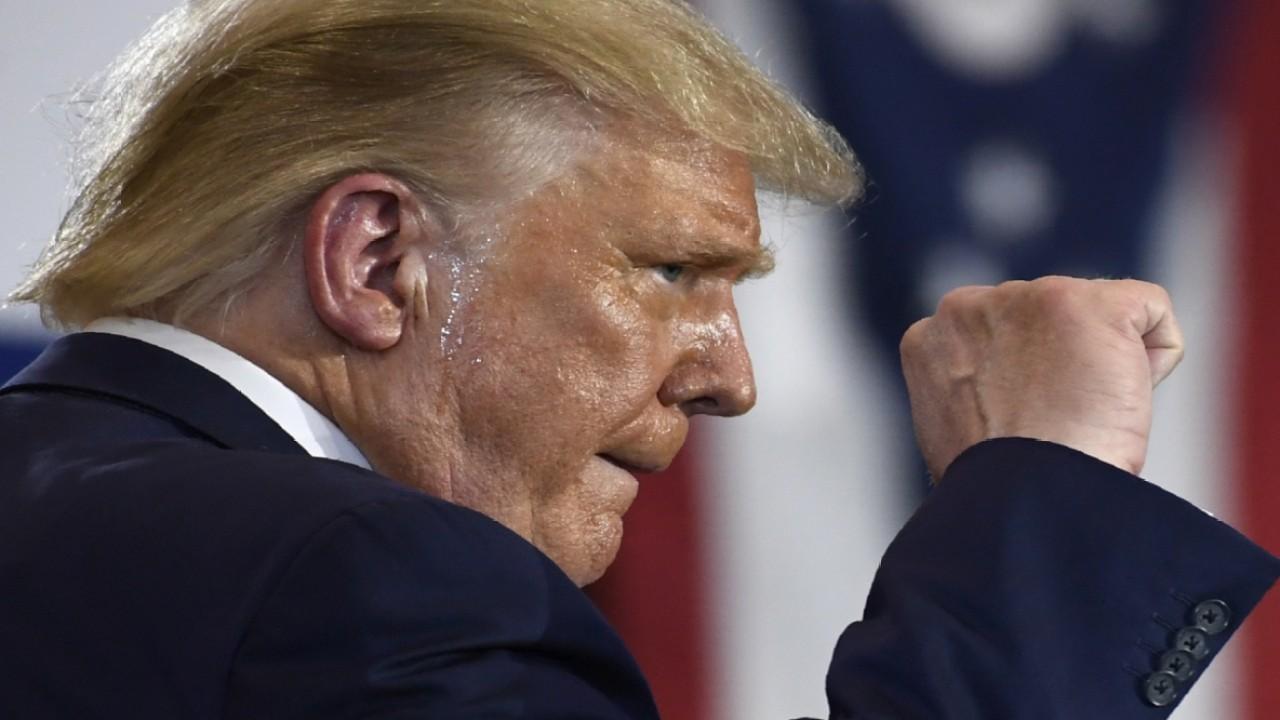Mnuchin rejects $2T coronavirus stimulus offer from Democrats: 'That's a non-starter'
Mnuchin called the proposal for each party to give $1 trillion a 'non-starter'
Treasury Secretary Steven Mnuchin rejected an offer from Democratic leaders for a roughly $2 trillion coronavirus relief package amid growing concerns that negotiations between the two parties are on the brink of collapsing.
"That's a non-starter," Mnuchin said Friday.
House Speaker Nancy Pelosi proposed the $2 trillion price tag during a closed-door meeting on Thursday, an attempt to reconcile the two party's drastically different aid proposals. Democrats offered to reduce their $3.4 trillion aid package by $1 trillion if Republicans would agree to raise their estimated $1 trillion proposal by the same amount.
WASHINGTON IMPASSE ON CORONAVIRUS RELIEF THREATENS US ECONOMY
That would result in legislation that costs somewhere between $2 trillion and $2.4 trillion.
“Yesterday I offered to them, we’ll take down a trillion if you add a trillion in,” Pelosi said. “They said absolutely not.”
NEARLY HALF OF US JOBS LOST TO CORONAVIRUS COULD BE GONE PERMANENTLY, POLL FINDS
The clock is ticking for both parties to meet their self-imposed Friday deadline to cut a deal on the next round of emergency aid for American families and businesses. If they miss it, White House Chief of Staff Mark Meadows has suggested there's "no sense" in continuing discussion.
The top negotiators, Meadows, Mnuchin, Pelosi and Senate Minority Leader Chuck Schumer, met again Friday afternoon on Capitol Hill. Pelosi said she would reiterate her $2 trillion offer.
"I will once again make the offer: We'll come down a trillion, you go up a trillion, and then we'll be within range of each other," Pelosi said. "But again, this a very different set of values across the table."
Pelosi said the proposed $1 trillion cut in Democrats' plan would largely stem from shortening the length of some of the aid program. Schumer suggested the plan could not go below $2 trillion, or it would lose Democrats' support, and couldn't go above $2 trillion, or it would lose Republicans' support.
TRUMP THREATENS TO TAKE EXECUTIVE ACTION IF DEAL ON CORONAVIRUS STIMULUS BILL NOT REACHED SOON
"That's what compromise is all about," he said.
The impasse in negotiations puts at risk potentially trillions of dollars in aid for families, businesses and the U.S. economy, including a fresh round of $1,200 stimulus checks, extra unemployment aid for millions of out-of-work Americans, $100 billion to help reopen schools and relief for cash-strapped state and local governments.
Whether to extend the supplemental $600 a week in jobless aid has proven to be a key sticking point in negotiations. Democrats have maintained the sweetened benefits need to be extended through the end of the year, while Republicans have argued that it disincentivizes Americans from returning to jobs that pay less, a notion economists have disputed.
GOP lawmakers have proposed a $200-a-week replacement instead until states could adopt a more complicated system that would cap aid at 70% of a worker's former salary.
MCCONNELL OPENS DOOR TO EXTENDING $600 UNEMPLOYMENT BOOST
Another area of contention is aid for schools -- Pelosi said in a letter to House colleagues they're "a couple hundred billion dollars apart" -- relief for cash-strapped state and local governments and food aid.
Affter nearly two weeks of talks that have yielded no substantial progress, President Trump has threatened to act unilaterally and issue executive orders to continue expanded unemployment benefits, reinstate an eviction moratorium, cut payroll taxes and continue a suspension of student loan repayments.
However, some of his proposals would likely face legal challenges. The Constitution gives Congress the power of federal spending, meaning that Trump does not have the legal authority to issue executive orders allocating how much money should be spent on the pandemic.




















